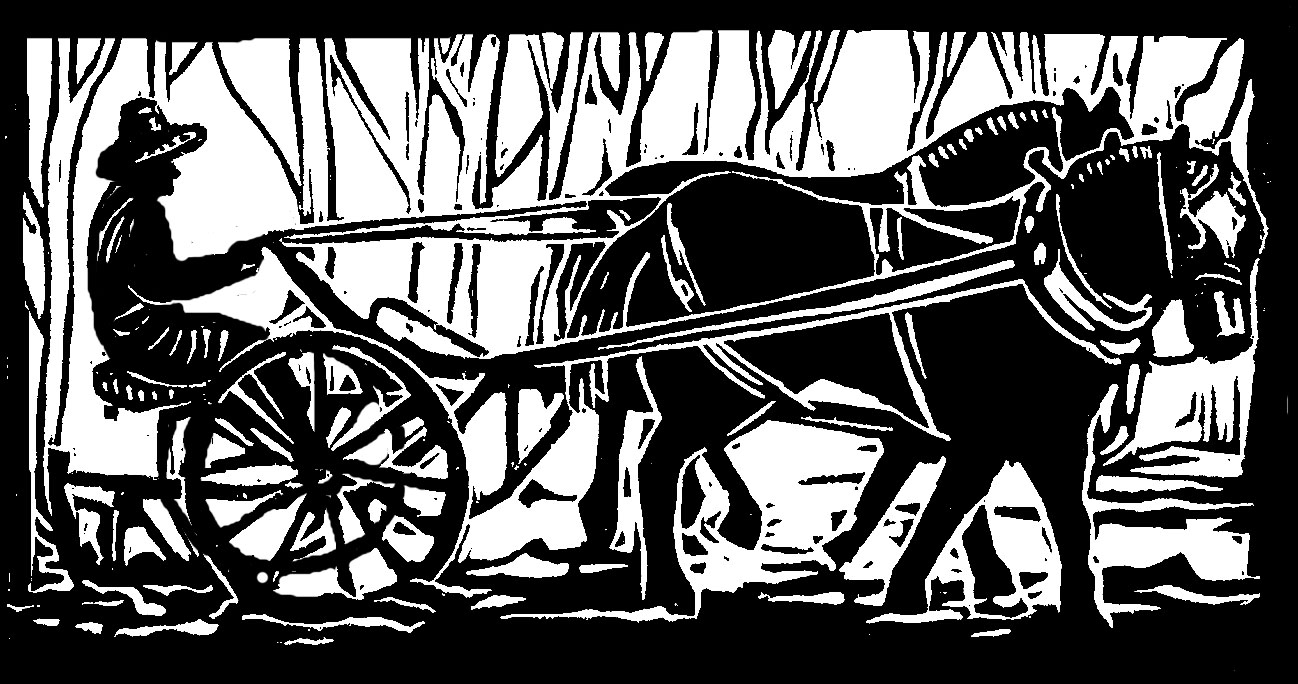You might call us slow farmers here on our draft horse powered vegetable farm.
Of course, farming by its nature is a slow process, and we help slow it down even more with our teams of horses and our hoes and shovels and our heirloom vegetables. We like the “Slow Food” and the “Slow Money” movements, and we also like slow farming. We like it that farming takes its own good time.
Even our fastest seeds -- cutting greens and pac choi -- take two days to germinate, and our slowest -- carrots in the cold spring soil -- might take three weeks to sprout. Red peppers are pokey too, despite being coddled in our propane heated greenhouse, with an electric heat mat running twenty four hours a day under each flat. They can also take up to three weeks to show their green.
Then there is the harvest wait. Our fastest harvestable item is those same cutting greens, and they take a month to get ready. The red papers are slow here as well, taking three months to ripen. But the onions grow for five months, followed by a curing period, and the potatoes win the slow prize, as they are in the ground from May first to October first.
There’s not much happening quickly in the farm kitchen either. First we thaw the marinara sauce (from tomatoes that we that we grew, harvested, cooked, and froze last summer) for three days in the fridge. Then we dump the sauce into a pot, along with the beans we grew, picked, shelled, dried, and then undried by soaking overnight, followed by an hour or more of cooking before they are ready to join the sauce.
Next we venture to the root cellar for carrots, realizing on the way that in fact we need to sort through all the carrots, which precipitates a three hour project kneeling on the kitchen floor with mesh bags, carrots in all conditions, and the dirt that attends them.
First we snap off any sprouts from the tops of the carrots, and compost any carrots that need it. Then we divide the rest into good-for-people carrots and good-for-horses carrots. We bag the carrots back up, return them to the root cellar, sweep up all the dirt on the floor, and only then remember what it was we wanted in the first place: two carrots for supper.
Happily, we began this supper project three days ago, and it was only lunchtime when we started with the carrots. Now we head back down to the root cellar, open the bag, extract the two carrots, wash them, chop them, and throw them in the pot. The herbs are next, herbs we grew, cut, dried, and jarred, and now we take a pinch, strip the tiny thyme leaves and bigger oregano leaves off the stems, and grind the herbs in a mortar and pestle with salt.
Then, as it approaches the true supper hour, we add some pasta (now that’s fast food -- in a package straight from the store!) and voila! Minestrone soup! Our slow food supper!
But we have to admit there is a moment on our farm around this time of year when we experience instant gratification. (Well, instant in the sense of a matter of hours, rather than days or months). That is the moment when our transplants, flourishing in the greenhouse for six to eight weeks, then hardened off outside for a week, are ready to go into the ground.
We (and our horses) have spent some time, of course, preparing that ground: plowing in the cover crop, loading the spreader with compost with our two shovels and our four hands while the horses wait patiently for the next load to be ready to spread, discing in the compost, then harrowing, and finally making the garden beds. Two people, two horses, five pieces of equipment, and many hours.
But at last we are at the moment: ground ready, transplants ready. We go! We plant 320 cabbages, 320 kohlrabi, 250 scallion plugs, 200 lettuce, 200 pac choi, 30 endive, 30 escarole.
And there it is: Instagarden!
We go from bare ground to 280 foot rows of gently meandering, sweetly growing beds of beautiful green plants. We have a garden! It is so sudden (sort of), so tangible, so satisfying!
Now there is no turning back! We are truly vegetable farmers once again, now that we have plants in the ground. And from now on, as the slow food crops creep along from leaf to flower to fruit (and seed), and the weeds gallop through the same process, we slow farmers are transformed: we are nimble, we are agile, we are deft!
We too gallop, from one patch of weeds to the next! We are swift, we are speedy, yes, we are fast (slow) farmers! Look at us go!
Originally published in the Monadnock Shopper News, May 14 – May 20, 2014

